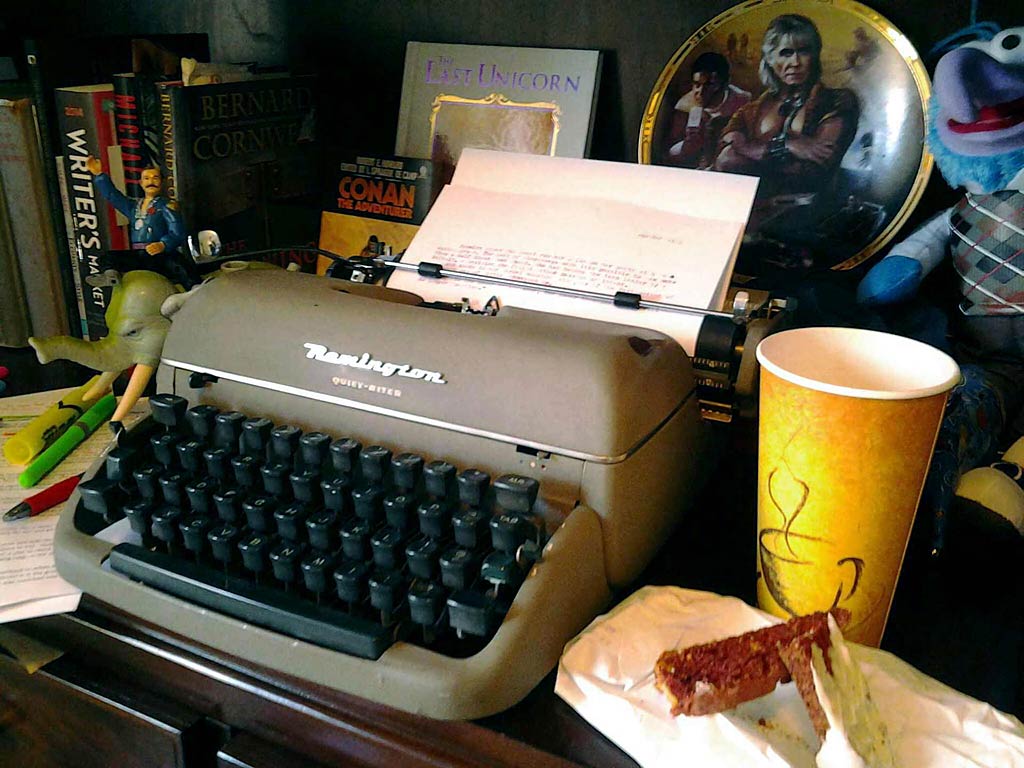A simple yet powerful concept to understand in writing is, what I call, Dramatic Narrative Emphasis.
It’s most obvious to recognize when it comes to Master Theme, but really applies to ANY narrative element. Here’s how it works:
Any time you write, you’re conveying meaning to the reader. The more things being conveyed at one time, the less impact they have and conversely, the fewer things being conveyed at one time, the more impact they have.
Think of it this way.
What’s easier to comprehend, talking one on one with an individual in a quiet restaurant. Or, thirty people, all talking over each other in British Parliament.
In practical fiction writing terms, the things you convey are not always spoken elements. In fact, a lot of times they won’t be.
For example, let’s take a war scene.
Your hero and his sidekick are storming the beach at Normandy, circa WW2… You’ve got bombs exploding everywhere, soldiers shell-shocked running the wrong way on the beach, bodies being shot apart, people helping each other to cover… Each of these elements is conveying something to the reader: the chaotic, frantic nature of war, the horrific deadly stakes of the battle, humanity even during the absolute worst scenario imaginable–if you’re worth your salt as a writer, you can express a ton of intent in every scene–now amid all this, your hero takes a knee, takes aim and says “I’m the best shot in the state back home. Time to show these Nazis what a small farm boy from Kansas can do.” In this example, the hero’s line will have weight and impact, BUT it will be measured in the context of everything else hitting the reader at the same time.
Now take this same set up, but when your hero takes a knee, you slow things down, distancing the moment from everything else you’re conveying (eliminating the competing voices in the room). Your hero breathes deep, he locks the magazine in his weapon, his eye squints through the rifle sight. “I’m the best shot in the state back home. Time to show these Nazis what a small farm boy from Kansas can do.” In this example, you’re not just giving the hero’s line weight and impact, you’re showcasing it with a dramatic punch. This isn’t something the reader is simply going to assimilate, it’s something they’re going to take note of.
Of course, dramatic emphasis doesn’t always hinge on decompression, like the example above.
The key point is that you’re quieting or distancing the actual number of elements conveyed to the reader. By focusing down to one core element, the reader is literally, forced to take notice.
Dramatic Narrative Emphasis can be an incredibly potent tool. Knowing when and how to use it, like much of writing, is part of the art. And like any tool it can be misused, leading to unintended and negative consequences.
This is especially apparent when it comes to themes in fiction. Inexperienced writers have a tendency to throw dramatic narrative emphasis (sometimes unintentionally) on a character to convey their Master Theme in dialogue. This often leads to a heavy handed, preachy tone.
Avoid this by making spoken connections to your Master Theme have less Dramatic Narrative Emphasis. That’s right, though it may sound counterintuitive when it comes to something as important as Master Theme, but go ahead and deliver it in the context of a bunch of other things.
If you do hit the reader with some DNE with Master Theme dialogue, fall back on your subtext. Let the DNE draw attention to the words, but leave it up to the reader to chew on the words a while and figure out exactly what they mean.
And lastly, to avoid the heavy handed, preachy vibe, focus your DNE on character actions that reflect the theme. Ironically, while actions speak louder than words, they are usually less jarring and more readily accepted by the reader.
Of course, like I said at the beginning, Dramatic Narrative Emphasis isn’t just about Master Theme. It can used to support any element worth supporting. Be aware of the simple technique and you’ll be churning out a more potent narrative in no time.▪
About the Author —
Nick Macari is a full-time freelance story consultant, developmental editor and writer, working primarily in the independent gaming and comic markets. His first published comic appeared on shelves via Diamond in the late 90’s. Today you can find his comic work on comixology, amazon and in select stores around the U.S. Visit NickMacari.com for social media contacts and news on his latest releases.
